A2LiVE Satiates China’s Demand for Electronic Music
China has a new sub music genre taking the country by ‘storm’, and it’s no longer contained within the underground clubs. Electronic music is now officially going mainstream, with STORM Festival, says A2LiVE.
China has a new sub music genre taking the country by ‘storm’, and it’s no longer contained within the underground clubs. Electronic music is now officially going mainstream, with STORM Festival, says A2LiVE.

A2LiVE and STORM founder Eric Zho speaks about the EDM industry in China. Image courtesy of Ato Ato Intergrated Media.
China’s biggest EDM festival STORM Festival founder Eric Zho speaks about how he got into EDM and the festival industry which catapulted into something unexpectedly huge and beyond expectation. It’s a story of entrepreneurship that pioneered the reemergence of a sub music genre. It is still the largest music evolution in the East the world has ever seen to date.
How did you come to start an electronic music festival?
After I left my position at Universal Music Group, I took on the role as TV Producer/Creator and started my own company – Ato Ato Integrated Media – providing content for television. And when we merged with China West, one of the largest Western music promoter in China in 2009 that promotes acts such as Kylie Minogue and Black Eye Peas, we also started investigating into other opportunities in China.
What we found was the untapped electronic music festival market. And what followed was a succession of 4 years of planning, researching and networking with the Ministry of Culture, businesses and friends who have been successful, hoping to follow the footsteps of MIDI.
We toiled around the idea of booking local and international superstars and followed the market very closely. Knowing that it is an expensive venture, it was not only until 2011 that we decided to go into the festival market. Growing up in Los Angeles, I’ve always been an EDM fan, plus, what we saw was a growing interest in dance music and thought that it’ll be an interesting mix to the Chinese nightlife.
-
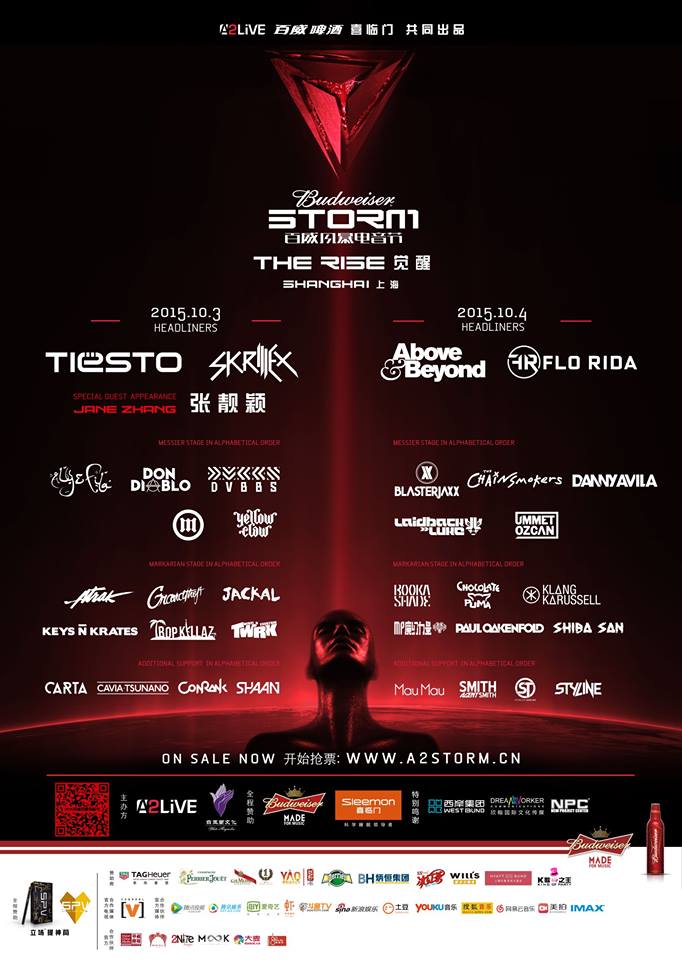
Lineup at the recent Storm Festival Shanghai in October 2016
What are the risks involved in starting something that’s not a mainstream choice?
EDM is a sub genre of a sub genre, so going into the China market or any other market is a huge risk. Instead of following the mainstream market, we created one. By 2011, AEG and Live Nation have infiltrated into the entertainment market in China ready with artists contractually locked down globally, which made it even more difficult for local promoter like us to book international artists at that point.
After surveying the business landscape in the region, we found that its the genre that’s with the least in terms of competition. The only potential competitors we have at that time, those with strong financial backing in association with big brands like Hennessy, were college kid promoters and night club owners. So, potentially, there were no big competitors and that meant that we have a huge opportunity at hand.
What are some of the growing trends in the Chinese music market?
From my point of view on the Chinese market, the festival industry is definitely a rapidly growing market. Many are attempting and announcing the launch of festivals but not many can actually pull it through. The trend we saw are the investments investors are putting into dance music. Shanghai is still the base of it all with Beijing and Guangzhou gradually growing and doing their bits. Some of the bigger players looking to invest in China include Ultra, Electric Zoo, Intelligent Dance Music [IDM] and Corona Sunsets.
“The extension of going into the playfield with practically no competitors, and as an extension of the electronic music festival, we have also ventured into producing TV content and documentary series surrounding the dance music world.”
Another trend that we continue to see growth is in the involvement of brands in music related events. It’s still a practice that’s almost non-existent in China, nonetheless, brands, not comparable to the West, see the potential in investing because of its relatively fashionable, young and healthy market clean of drugs.
With an affluent festival-goers’ rate, consumer brands like Budweiser, one of the biggest music sponsors, are focusing their attention to participate in festivals and music related events. Other brands looking to participate comes from the energy drinks, automobile and cosmetics industry. Commercialisation is good for the industry in a sense that sponsors are putting money into what they think people will like. This also proves that whatever we are doing right now is heading towards the right direction.

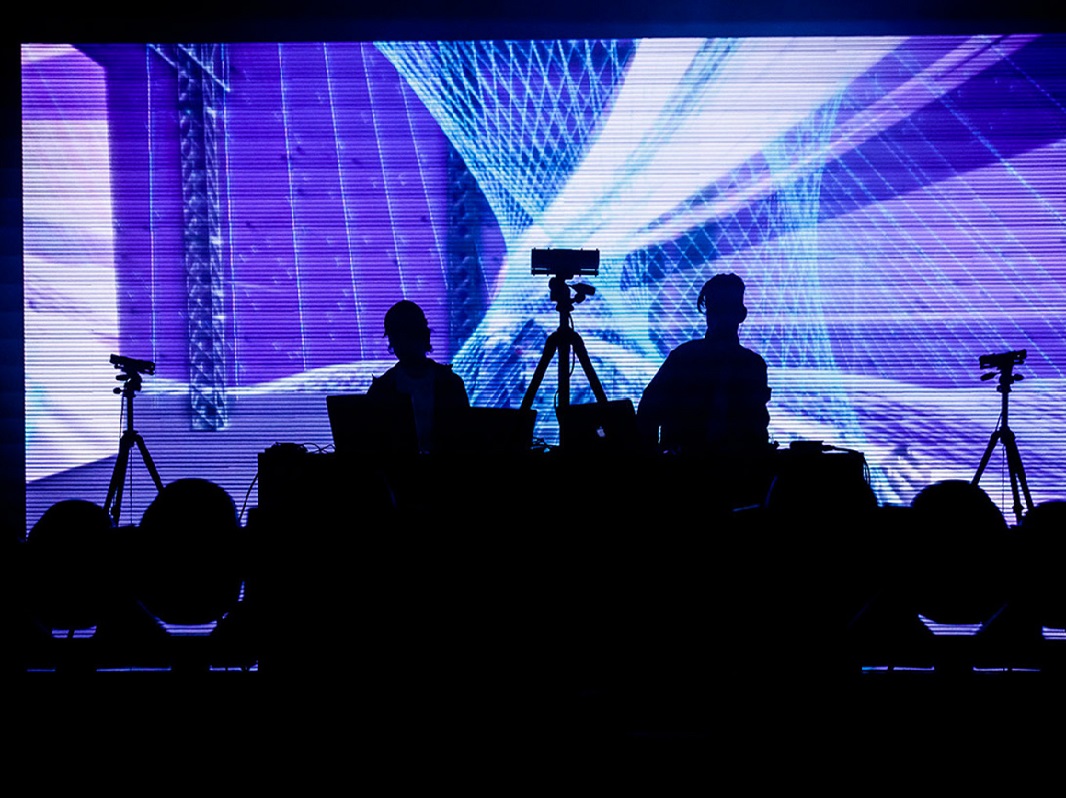
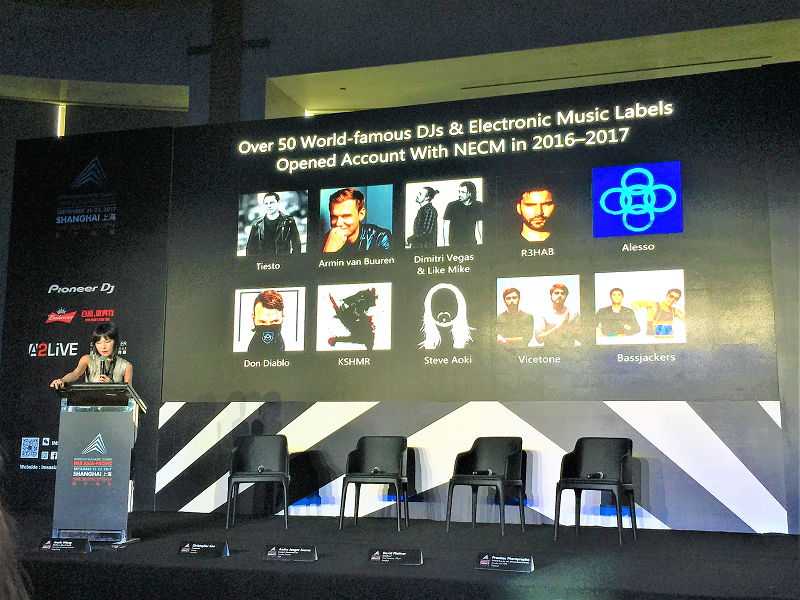

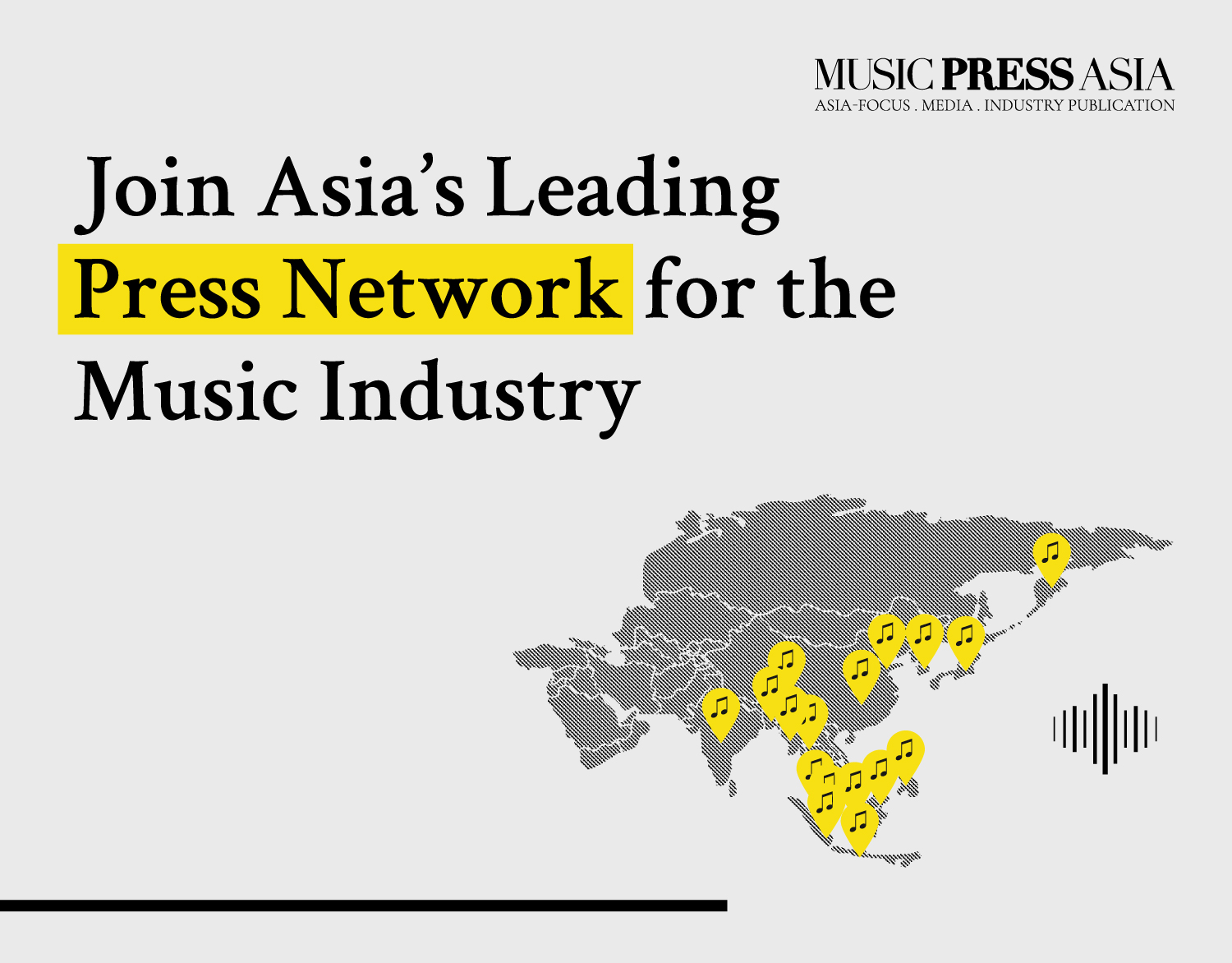

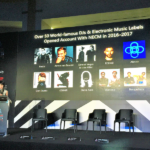


Exclusive Stream: STORM Festival Founder Eric Zho Full Interview with Pete Tong – Music News Asia
October 20, 2016 at 3:41 pm[…] BandLab 3 weeks ago-Playster Announce Partnerships with Sony, Warner and The Orchard 3 weeks ago-A2LiVE and STORM Founder Eric Zho Speaks About the EDM Industry in China 3 weeks ago-Facebook Seeks Director of Global Music Licensing Partnerships 3 weeks ago-Samsung Milk […]